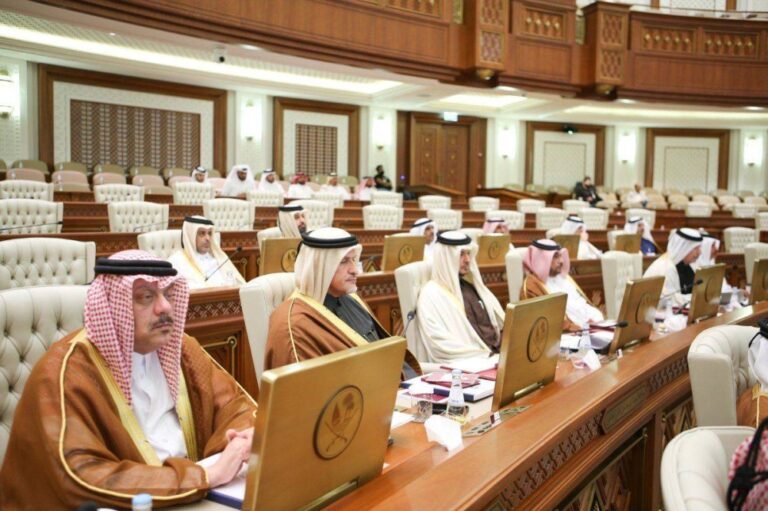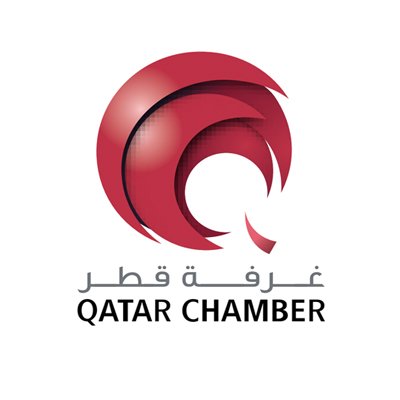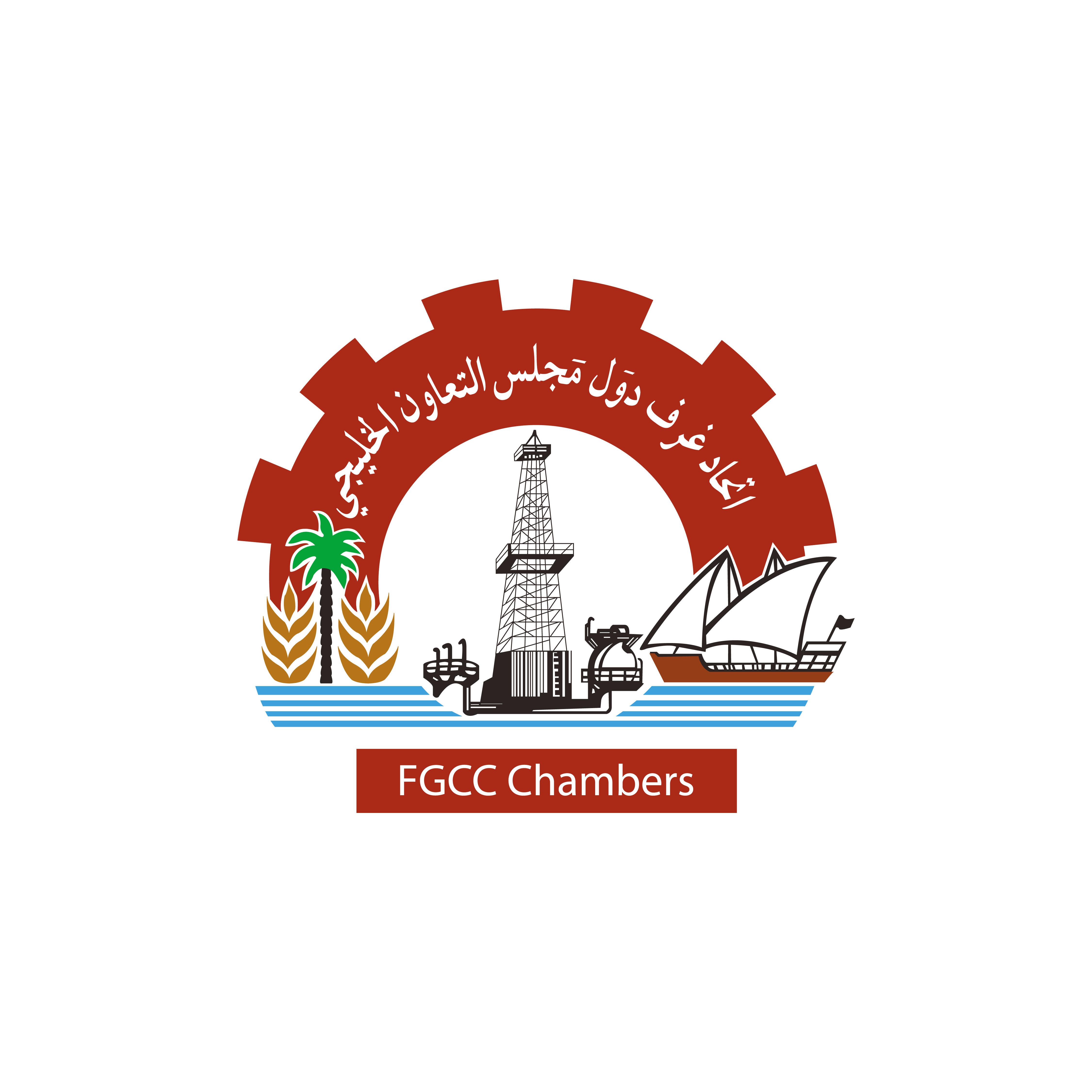The Shura Council, at a meeting under the chairmanship of its Speaker HE Hassan bin Abdullah Al Ghanim on Monday, hosted President of the Civil Service and Government Development Bureau (CGB) Abdulaziz bin Nasser bin Mubarak Al Khalifa along with a number of (CGB) experts to present the strategic plan for recruitment in the government sector, the plans to train and qualify Qataris for the labour market, replacement and nationalisation, and development of government services.
At the outset of the session, the Shura speaker stressed the important role played by the CGB in qualifying Qatari citizens, and its efforts in implementing nationalisation and replacement policies, which stems from the centrality of the human element as a fundamental pillar of development, and as an important resource that must be developed and preserved in line with the Qatar National Vision 2030.
The Council listened to the presentation made by CGB president, in which he discussed the efforts made to provide sustainable competitive services and realise the potential of human resources through excellence and innovation. Khalifa outlined CGB’s specialisations, its efforts in managing and developing human resources and its role in the recruitment through the ‘Kawader’ platform by posting job opportunities in 54 government and semi-government entities and the private sector.
He pointed out that the CGB succeeded during the past year in securing jobs for 4,576 citizens – 1,476 males and 3,100 females – in the government sector. He added that the Bureau is continuously developing the ‘Kawader’ platform, to provide support to job seekers by providing courses on preparing CVs and passing interviews, from which more than 1,900 job seekers benefited in 2023.
The CGB president highlighted the Bureau’s efforts to improve the government work system and develop and qualify cadres, reviewing human resources policies and plans in implementing replacement and nationalization policies in accordance with the directives of the wise leadership.
He added that the implementation of the relevant plans passes through two paths, the first through immediate replacement via the “Kawader” platform, or through practical training, and the second path is through future replacement through government scholarship programs.
He pointed out that the first track of the plan is by targeting any job held by a non-Qatari, according to the replacement and nationalisation guide issued by the Bureau, to ensure appropriate replacement without disrupting the workflow.
Khalifa stated that the various government agencies succeeded in replacing 712 of the targeted jobs in 2023.
He explained that the second track of the plan represents future replacement through government scholarship programmes for specialisations that are not available in the job market. In 2022, there were 2,363 citizens with a scholarship and 2,690 graduates in various fields, he pointed out.
Regarding the ‘Knowledge Transfer’ initiative, Khalifa said that it is the first of its kind at the state level and aims to develop national talent and the capabilities of government sector employees whose experience does not exceed five years to allow them to build a network of professional relationships and acquire cognitive and behavioural skills in the fields of studies, data analysis, strategic planning, design concept development, project management and effective communication.
He added that the initiative seeks to develop national expertise in various fields based on the needs required in the government sector through a six-month development program of functional practice and work within consulting companies on existing strategic projects, which contributes to raising the efficiency and performance of employees in particular and the government sector in general.
Regarding the strategic plans in training and qualification, he pointed to the Bureau’s efforts to achieve the highest levels of organisational and administrative development and modernisation, as well as enhance human resources in government agencies and advance them in a way that increases efficiency and effectiveness and achieves optimal use.
Khalifa highlighted the achievements of the Institute of Public Administration of the CGB in training and empowering Qatari employees by providing them with the necessary functional skills that enable them to carry out their job tasks to the fullest extent.
The institute provided 1,415 training programmes in various fields in 2023 that benefited more than 32,000 government employees, he added.
He spoke about the efforts of the CGB in developing organisational structures and government services and building capabilities and government leaders, pointing out the launch of the ‘Mahara’ programme in cooperation with a number of parties to qualify job seekers and train them extensively to fill jobs in the technical, technological, administrative and media fields.
The CGB president also touched on the ‘Taqat’ initiative launched by the Bureau to optimally handle the challenges faced by institutions regarding the efficiency of operating employees by re-establishing, qualifying and training them to occupy new jobs that represent added value to the government.
Regarding the ‘Tamheen’ programme, launched by the CGB in cooperation with the Ministry of Education and Higher Education, Khalifa explained that it aims to attract citizens toward the teaching profession by qualifying non-educational university graduates and preparing them to fill teaching positions.
He also gave a brief presentation on the Bureau’s efforts in proposing and reviewing work systems in government authorities with the aim of improving the work environment, such as activating part-time work, launching flexible work systems on an experimental basis to reduce the working hours of female employees of government agencies during vacations, as well as implementing a questionnaire to measure government sector employees’ satisfaction with the work environment to ensure the preparation of fully studied improvement plans developed in accordance with employees’ points of view. The presentation also included a comprehensive explanation of the ‘Ada’a’ system launched by the Bureau to develop employees’ performance and motivate them to demonstrate their talents and abilities by involving all employees in implementing the employer’s goals by linking individual performance to institutional performance.
He spoke about the launch of the ‘Eskan Portal’ designed to facilitate and accelerate procedures regarding housing, in addition to implementing standardisation and auditing policies to ensure that administrative buildings and residences comply with the highest standards of security and safety and optimal use of spaces.
The CGB, in cooperation with various government agencies, succeeded fully or partially in digitizing a large percentage of government services to better facilitate its procedures, he said.
He also touched on the unified platform for managing and unifying customer experience ‘Sharek’, as well as the Qatar Government Excellence Award that aims to increase the efficiency and effectiveness of the government sector and the services provided to customers.
QNA
Qatar tribune



